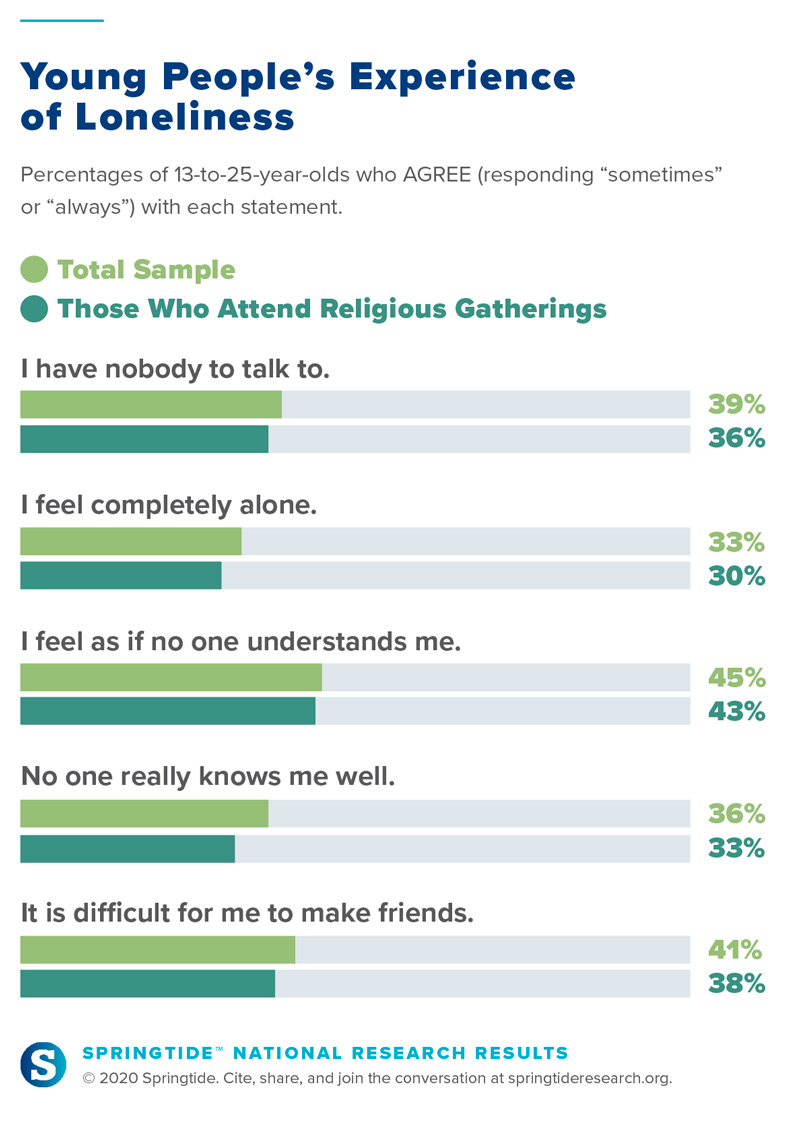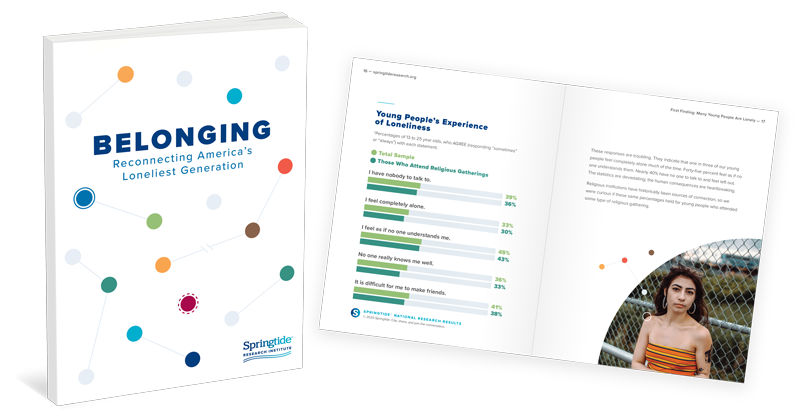
A Remarkable Moment on Campuses
College students are lonely, isolated, and disconnected–but our research shows how to help young people feel like they belong.
As a college professor, I’ve seen firsthand these past few weeks how normal education has been upended. Classes have been cancelled, students sent home, instruction moved online. Students feel this impact in a myriad of noninstructional ways as well. Think for a moment about the extended networks of support systems that are denied the opportunity to collectively celebrate a graduate’s achievement with the cancellation and delay of commencement ceremonies.
But this disruption, while notable, is nothing compared to the real changes taking place on campuses over the past five years.
Many of you work with college students or college-bound students and will know what I’m about to say: College students are lonely, isolated, and disconnected from those around them. The spiritual, physical, and mental health consequences of this are devastating.
In an eloquent and heart-rending op-ed titled “There’s a Loneliness Crisis on College Campuses”1 last summer, Varun Soni, dean of religious life at USC wrote:
“When I arrived at USC 11 years ago as dean of religious life, my pastoral conversations with students mostly focused on their quests for meaning and purpose. They were striving to translate values into action, cultivate joy and gratitude, live extraordinary lives.
But over the last several years, these conversations have taken a devastating turn. Whereas students used to ask “How should I live?” they are now more likely to ask “Why should I live?” Where they used to talk about hope and meaning; now they grapple with hopelessness and meaninglessness. Every year, it seems, I encounter more stress, anxiety, and depression, and more students in crisis on campus. . . . I never got the question in my first five years at USC that I now get almost daily from students: “How do I make friends?” Students may have thousands of friends online, but few in real life; they may be experts at talking with their thumbs, but not so much with their tongues. As a result, many feel as though they don’t have a tribe or a sense of belonging. They feel disconnected from what it means to be human.”
Varun Soni
We’ve been doing our own research about loneliness and isolation among young people over the past year. Our findings, presented in Belonging: Reconnecting America’s Loneliest Generation, confirm what Dean Soni and so many others, like you, are witnessing.
Thankfully, though, our data also show a pathway forward.
Our research showed conclusively that it’s time to stop building traditional, programmatic responses to attracting and retaining young people. Instead, we must start systematically implementing a relationship-based approach.
Our research shows that attendance is simply an ineffective way of determining whether a young person is experiencing a true sense of belonging. In fact, attendance at religious gatherings has no protective effect against loneliness and isolation.
Instead, we must put as much effort, intentionality, and sophistication into our relationship efforts as we have been putting into traditional programs.

The good news is that this is not only the best approach as borne out by the most recent data from Springtide and others but also conforms to decades of sociological research about how communities are formed.
There’s an old adage in my field of sociology that belonging precedes believing. While we often get that reversed in the religious world, research from a variety of fields prove otherwise. True, durable belief only emerges when a person has a true sense of belonging to a group.
The disconnection that I’ve been seeing on campuses—that you’ve been seeing—can only be solved by leading with relationships first.
______
Blog post photo credit: Ryan Jacobson





